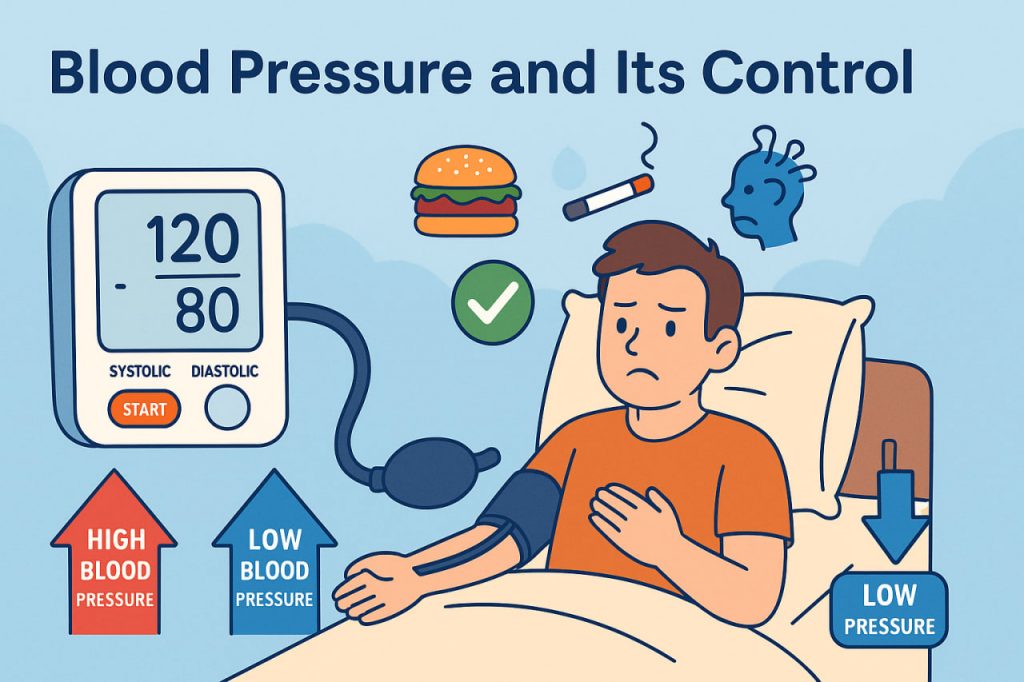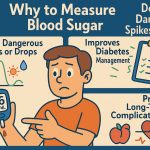What Is Blood Pressure?
Blood pressure is the force that circulating blood exerts on the walls of arteries. It is measured in millimeters of mercury (mmHg) and recorded with two numbers:
- Systolic pressure (top number): the pressure when the heart beats.
- Diastolic pressure (bottom number): the pressure when the heart is at rest between beats.
Normal blood pressure is generally considered to be around 120/80 mmHg. When these values consistently rise or fall outside of healthy ranges, it can lead to serious health issues.
Why High or Low Blood Pressure Is a Problem
- High blood pressure (hypertension) puts extra strain on the heart and blood vessels, increasing the risk of heart attack, stroke, kidney disease, and vision problems.
- Low blood pressure (hypotension) can cause dizziness, fainting, fatigue, and in extreme cases, shock due to poor blood flow to vital organs.
Both conditions often develop gradually and may not cause symptoms at first, which is why regular monitoring is essential.
Causes and Risk Factors
Blood pressure can be influenced by a variety of factors:
- Unhealthy diet (especially high in salt or saturated fats)
- Physical inactivity
- Obesity or being overweight
- Smoking and excessive alcohol consumption
- Chronic stress
- Genetics and age
- Medical conditions such as diabetes or kidney disease
Some factors are controllable through lifestyle, while others require medical support.
Why Regular Monitoring Matters
Many people with abnormal blood pressure don’t feel any symptoms. Monitoring allows for early detection and management. Regular measurement:
- Helps track progress if you’re on treatment
- Detects silent hypertension or hypotension
- Prevents long-term damage to organs
- Helps tailor lifestyle changes and medications
Blood pressure can be measured at home with a digital monitor, at pharmacies, or during medical checkups.
How to Maintain Healthy Blood Pressure
- Reduce salt and processed foods
- Eat more fruits, vegetables, and whole grains
- Exercise at least 30 minutes most days of the week
- Maintain a healthy weight
- Quit smoking and limit alcohol
- Manage stress through breathing, rest, or hobbies
- Take medication as prescribed, if needed
Healthy lifestyle choices are the foundation of long-term cardiovascular well-being.
Glossary
- Blood pressure – The force of blood against artery walls during circulation
- Systolic – Pressure when the heart contracts
- Diastolic – Pressure when the heart relaxes
- Hypertension – High blood pressure
- Hypotension – Low blood pressure


